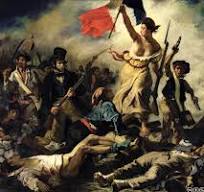
The French Revolution, which began in 1789, was a pivotal period in world history that marked the decline of absolute monarchy and the rise of democratic ideologies. Rooted in social inequality, economic hardship, and Enlightenment ideas, the revolution fundamentally transformed France and set the stage for modern governance.
At the heart of the revolution was the deep-seated discontent among the Third Estate, which comprised the majority of the population, including peasants, laborers, and the bourgeoisie. They were burdened with heavy taxes while the nobility and clergy enjoyed privileges and exemptions. The financial crisis, exacerbated by costly wars and lavish spending by the monarchy, led to widespread hunger and unrest. The Estates-General was convened in May 1789 to address these issues, but the Third Estate quickly found itself marginalized.
In a bold response, the Third Estate declared itself the National Assembly, vowing to draft a new constitution. This act of defiance ignited the revolution, culminating in the storming of the Bastille on July 14, 1789, a symbol of royal tyranny. The Declaration of the Rights of Man and of the Citizen was adopted shortly thereafter, articulating principles of liberty, equality, and fraternity, which resonated deeply with the populace.
The revolution saw the rise of radical factions, most notably the Jacobins, who sought to eliminate the monarchy entirely. The Reign of Terror, led by Maximilien Robespierre, marked a dark chapter, characterized by mass executions of perceived enemies of the state. However, this period also laid the groundwork for a more secular and republican society.
By 1799, the revolution had given way to the rise of Napoleon Bonaparte, who established himself as the leader of France. While he ultimately restored autocratic rule, the revolution’s ideals persisted, influencing future democratic movements across Europe and the world.
In conclusion, the French Revolution was a complex and transformative event that reshaped France’s political landscape. Its legacy of challenging authority and advocating for human rights continues to inspire movements for democracy and social justice to this day.